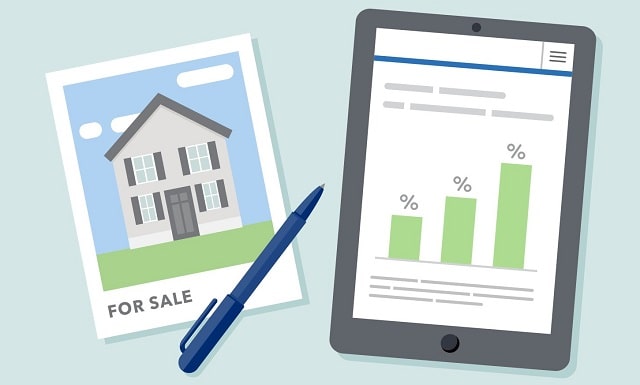
The Mortgage Market
There’s no one single top factor in determining mortgage prices. There are many factors that help lenders set interest rates. Some of the factors are within your control as the prospective property owner. There are a lot of different factors that decide the price of your mortgage. Some factors depend on you, the aspiring homeowner or property owner. Some depend on the particular property you have in mind. Some factors depend on the state of the economy. There isn’t one big factor that decides the mortgage price, but many important considerations that help a lender set the interest on a particular loan. Let’s take a look and see what those 6 main mortgage price factors are:
1. Mortgage Market Interest Rates
Mortgage rates are tied to the general level of interest rates across financial markets. Because of changes in the economy and monetary policy set by the government, interest rates go up and down over time. When interest rates move higher, mortgage rates will follow, and vice versa.
2. Mortgage Payment Term
You have a few options when it comes to your mortgage term, which is the number of years you have to pay back the loan. Most mortgages are either 15, 20, or 30 years in length. Interest rates on mortgages with longer terms will generally be higher, because there is inherently more risk in lending money to someone for a longer period of time. However, a longer loan term will result in lower monthly payments because the mortgage payments are spread out over a longer period of time.
3. Fixed Or Adjustable Rate Mortgages
The most common type of mortgage is a fixed-rate mortgage, where the interest rate on the loan is constant for the entire life of the loan. Your required monthly mortgage payment will not change.
A less frequent type of mortgage loan is a known as an ARM, or an adjustable-rate-mortgage. In this scenario, the loan will have a fixed interest rate for an initial period of time (typically 5, 7, or 10 years), after which the mortgage rate will reset and fluctuate based off a broadly followed market rate, called a mortgage index. This type of mortgage may be attractive to some home buyers because the initial fixed rate period is typically a lower interest rate than if the borrower were to pay a fixed rate for the entire life of the bank loan.
4. LTV (Loan-To-Value) Ratio
The ratio of the amount borrowed for a mortgage loan versus your future home’s appraised value is called the LTV ratio. A mortgage with a lower LTV ratio is viewed as safer and therefore usually carries a lower interest rate from your bank, credit union, or private lender.
5. Your FICO Credit Score
Your FICO score is a standardized measurement of creditworthiness. Higher FICO scores indicate better credit, and a greater likelihood that the borrower will not default on their mortgage loan. Therefore, a homeowner with a higher FICO score will generally receive a lower interest rate on their mortgage loan.
6. DTI (Debt-to-Income) Ratio
The ratio of a your total monthly debt requirement versus your total monthly income is called the DTI ratio. A homeowner with a low DTI ratio is viewed as less risky and therefore usually receives a lower mortgage interest rate.
Master Your Mortgage & Money
As you can see, there’s a lot for both you and your mortgage lender to take into account, but luckily there are real estate and financial websites like Lean Startup Life that simplify the process to help you get the lowest rate possible. Master your mortgage and your money!
